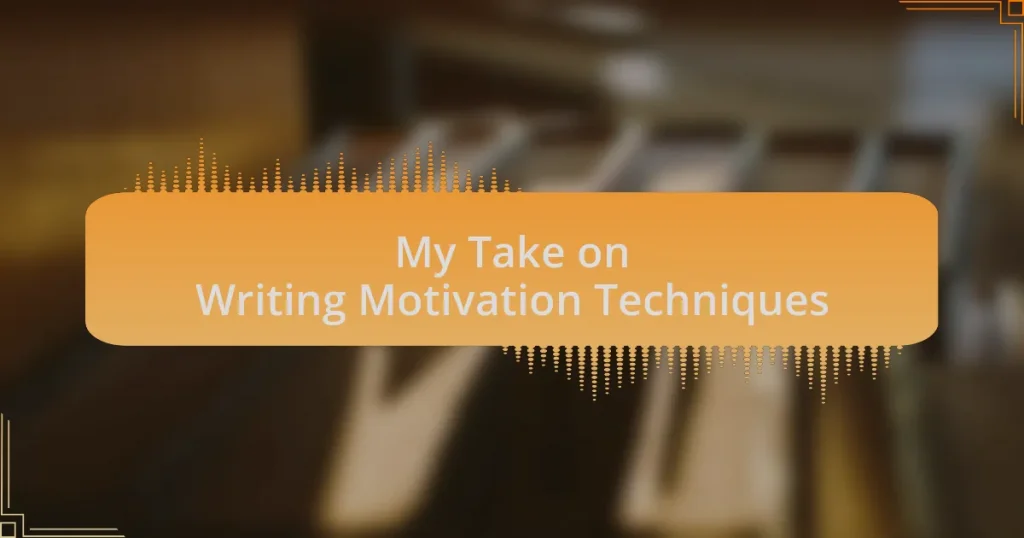Key takeaways:
- Setting small, achievable writing goals can significantly boost motivation and confidence.
- Accountability through sharing goals with friends or writing groups enhances commitment and support.
- Understanding personal motivations for writing deepens connection and sustains creative energy.
- Engaging content can be created by sharing personal stories, using vivid imagery, and incorporating prompts for community involvement.
Author: Evelyn Hartwood
Bio: Evelyn Hartwood is a contemporary novelist known for her compelling narratives and richly drawn characters. With a background in psychology, she explores the complexities of human emotion and relationship dynamics within her stories. Evelyn’s debut novel, “Whispers of the Heart,” received critical acclaim and was shortlisted for several literary awards. When she’s not writing, she enjoys hiking in the mountains and experimenting with new recipes in her kitchen. Evelyn resides in Asheville, North Carolina, where she draws inspiration from the vibrant arts community and the breathtaking natural landscape.
Understanding writing motivation techniques
When I think about writing motivation techniques, I often reflect on the moments that ignited my passion for writing. One technique that’s resonated with me is setting small, achievable goals. I remember when I decided to write just 300 words a day; it felt manageable. It turned out to be a game-changer, as those small victories kept me motivated and built my confidence over time.
Another powerful technique is accountability. I’ve found that sharing my writing goals with a trusted friend or joining a writers’ group creates a sense of commitment. Have you ever noticed how much you push yourself when others are involved? The encouragement and feedback from peers can be incredibly uplifting, transforming the solitary act of writing into a shared journey filled with support.
I also believe understanding your underlying reasons for writing is crucial. I often ask myself, “Why do I write?” The answer varies from seeking personal expression to hoping to connect with others. This deeper connection to my purpose fuels my motivation every day, reminding me that my words can make a difference. What drives your writing? Exploring that question can unearth invaluable insights that sustain your creative energy.
Creating engaging content for motivation
Creating engaging content for motivation involves knowing your audience and what sparks their interest. I recall a time when I shared a deeply personal story about my writing journey. The response was overwhelming. Readers reached out, sharing their struggles and triumphs, which reinforced my belief that vulnerability can be a powerful motivator. Have you ever considered how your experiences might inspire someone else?
Moreover, using vivid imagery and relatable scenarios can significantly enhance motivation. For instance, when I described the chaos of my writing desk, cluttered with notebooks and half-finished drafts, it resonated with many fellow writers. They saw their own chaotic spaces reflected in my words, and it created an instant connection. How can you paint your own writing scene to draw readers in?
Lastly, I find that incorporating prompts or challenges throughout the content boosts engagement. I once challenged myself and my readers to write a short piece based on a random prompt each week. The excitement that came from sharing those pieces fostered a community spirit. Have you thought about the potential of turning your content into a collaborative adventure?



